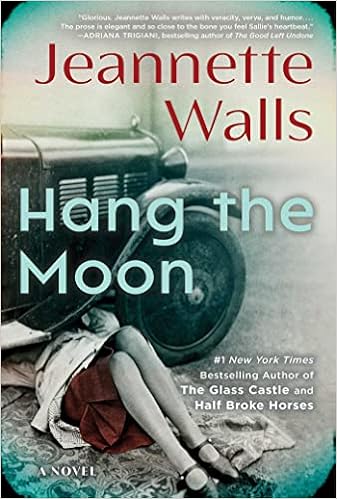4 Stars
I read Gilead, the first novel in the Gilead series, many years ago and Jack, the last book in the quartet, in 2020. This, the second book, revisits Gilead but from a different perspective.
Glory Boughton, 38, has returned to Gilead, Iowa, after a broken engagement and an abandoned career. She is now caring for her aging and increasingly frail father, Reverend Robert Boughton. Then the black sheep son Jack returns as well, after an absence of twenty years. Robert is thrilled at the return of his prodigal son but reconnection is initially hesitant and awkward. What is heartwarming is the gradual understanding and acceptance that grows between Glory and her brother.
It is the character of Jack that most interested me, though perhaps my understanding of him is coloured by my having read Jack. He describes himself as a scoundrel and admits to being a thief, liar, and confirmed drunk. He does have positive traits; his kindness and intelligence are certainly obvious. What is also clear is that he is a lonely, lost soul. Glory’s description of her brother as “A man of sorrows and acquainted with grief, and as one from whom men hide their face” is perfect.
It is impossible not to have sympathy for Jack. He has felt like a misfit his entire life, never at ease with his siblings, a “child who didn’t feel at home in the house where he was born.” He has an overpowering sense of worthlessness, believing that he does harm and causes misery: “’I create a kind of displacement around myself as I pass through the world, which can fairly be called trouble.’”
I was also interested in the character of the minister, an old man living his last days. The extent of his forbearance is almost unbelievable. He sees his son’s delinquency as his failing as a father, “taking the bitterness of it all on himself and sparing his miscreant son.” His love for his son is obvious: “’I thanked God for him, every day of his life, no matter how much grief, how much sorrow - . ’” Seeing his son suffer is “’like watching a child die in your arms.’” Of course, there are touches of humour in his portrayal: he is “a little less sensitive than he ought to have been to the risk of repeating himself.”
Yet my opinion of Jack’s father is tainted by his views of Blacks. His comments suggest a blindness, emphasized by his oft-closed eyes: “’I have nothing against the colored people. I do think they’re going to need to improve themselves, though, if they want to be accepted. I believe that is the only solution.’” He accuses the Blacks of provoking violence even if their protests are non-violent. When Jack mentions having met some very fine Black Christians, Rev. Boughton says, “’Then we can’t have done so badly by them, can we?’” His statement that “’I think we had all better just keep to ourselves’” is very telling. Ironically, it is the Jack, the unbelieving sinner, who speaks with the voice of justice, not his supposedly wise and pious father.
The conversations about the treatment of Blacks suggest that Jack has several reasons for returning home. Doubtless he is looking for refuge, searching for home, to belong somewhere. He may want to make peace with his father, but it also seems that he is wondering if his relationship with Della would be accepted in Gilead. The ending does suggest some hope: Glory imagines a house where she can someday openly welcome Robert.
As the title suggests, the book examines what is home and whether it is possible to come home. For Glory, coming home has been an admittance of defeat: “Home. What kinder place could there be on earth, and why did it seem to them all like exile.” Coming home may not provide the comfort one seeks: “But the soul finds its own home if it ever has a home at all.”
Because the novel gets bogged down in dry discussions of scripture and sermons, it is slow in places, just like Robinson’s other books in the series. Nonetheless, I think that Home should be read after Gilead which clarifies the Jack and John Ames relationship. And Jack provides the most intimate view of the prodigal son. Together the three novels emphasize how easy it is to misunderstand and misjudge people.








